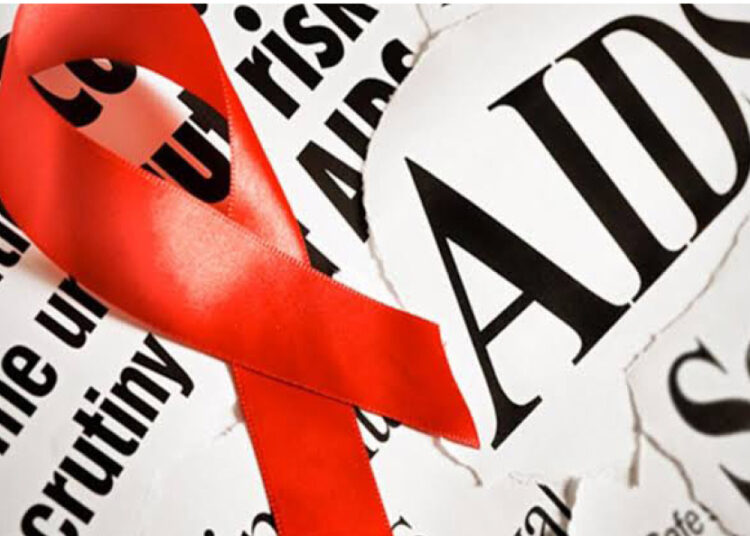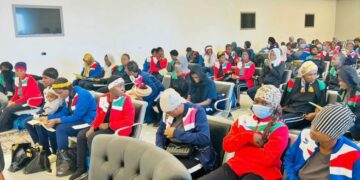As Nigeria continues to struggle with low coverage in the prevention of mother-to-child transmission (PMTCT) of HIV, an estimated 22,000 children are born with the virus each year.
Despite a global PMTCT target of 95 percent, Nigeria’s coverage remains at just 33 percent, leaving a significant 62 percent gap.
According to the UNAIDS 2023 report, Nigeria is among the countries with the slowest decline in new HIV infections among children. In 2020, the country accounted for 14 percent of global child HIV infections, the highest worldwide, with 21,000 new infections among children.
Currently, approximately 160,000 Nigerian children aged 0–14 are living with HIV, with 22,000 new infections and 15,000 AIDS-related deaths recorded annually.
The director-general of the National Agency for the Control of AIDS (NACA), Dr. Temitope Ilori, decried the rate of mother-to-child transmission of HIV.
She said “Our country continues to face a significant challenge in preventing mother-to-child transmission of HIV.
“Our PMTCT and paediatric HIV coverage remains below 33 percent, far from the 95 percent target.”
The DG, who spoke at a press conference in commemoration of the World AIDS Day 2024, with the theme: “Take the Rights Path: Sustain HIV Response, Stop HIV among Children to End AIDS in Nigeria by 2030”, in Abuja, however said that the Federal Ministry of Health and Social Welfare, recently established a national-level acceleration committee; to track implementation.
She said that NACA has inaugurated State committees in three states engaging directly with three governors to support the launch and resourcing of a similar committee at the state level, aimed at ensuring that no child is born HIV positive in country.
UNAIDS country director for Nigeria, Dr. Leo Zekeng, emphasised that addressing mother-to-child transmission is both a medical and human rights issue. “Stopping babies from being born with HIV/AIDS and ensuring access to quality services is a fundamental human right.
“Let us all collectively agree and confess that we have failed our children living with HIV and AIDS.
“We must find all pregnant women, test them, and link those who test positive to care. In doing that, we will ensure that no one is left behind,” he said.
Deputy executive director of programmes for UNAIDS, Dr. Angeli Ahrekar, called for intensified efforts to scale up PMTCT services. She stressed that Nigeria must act urgently to end vertical transmission and ensure an AIDS-free generation.
She said “We would want to see a renewed and intensive efforts to achieve the level of scale-up needed to meet the PMTCT goals.
“The future of Nigeria’s children cannot be left unchecked, concerted and urgent action must be taken to avert children being consigned to live a lifetime with a virus that is now preventable. We need to end the vertical transmission of the epidemic to have an AIDS-free generation in Nigeria,” said Dr. Ahrekar.
However, structural inequalities, stigma, and discrimination remain major obstacles to achieving this goal. Dr. Ahrekar noted that these barriers hinder access to HIV prevention and treatment services, perpetuating the epidemic.
To combat these issues, Dr. Ahrekar called for the removal of discriminatory laws, the end of stigmatization, and the enforcement of Nigeria’s 2014 Anti-stigmatization Act, which protects the rights of people living with HIV.
While funding for key population prevention programmes faces a 90 percent gap, Dr. Ahrekar urged Nigeria to innovate and optimise available resources to expand quality prevention services.
Despite progress in HIV/AIDS management, stigma continues to prevent many people from accessing treatment or disclosing their status.
World AIDS Day is commemorated on December 1, every year. It is a day set aside to show support for people living with HIV and to remember those who have died from AIDS-related illnesses.
World AIDS Day serves as a crucial reminder of the urgent need for equity, human rights, and community action to protect Nigeria’s children and work toward ending the HIV epidemic.





